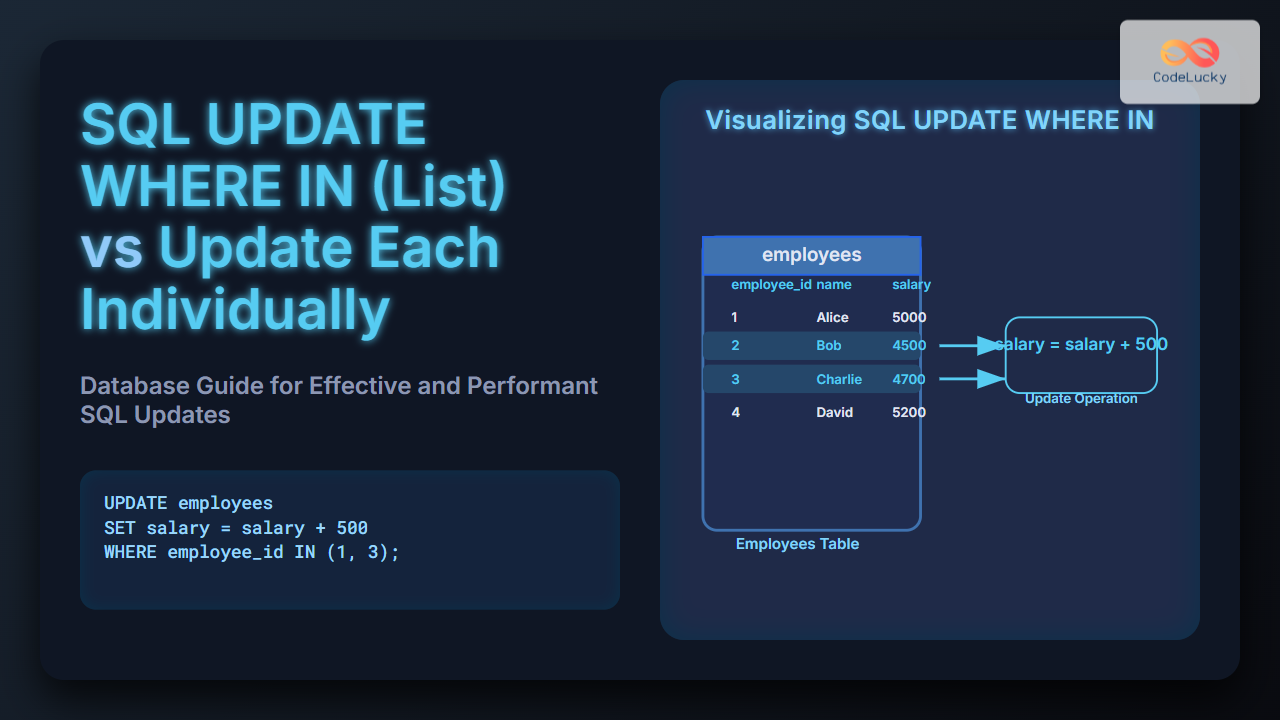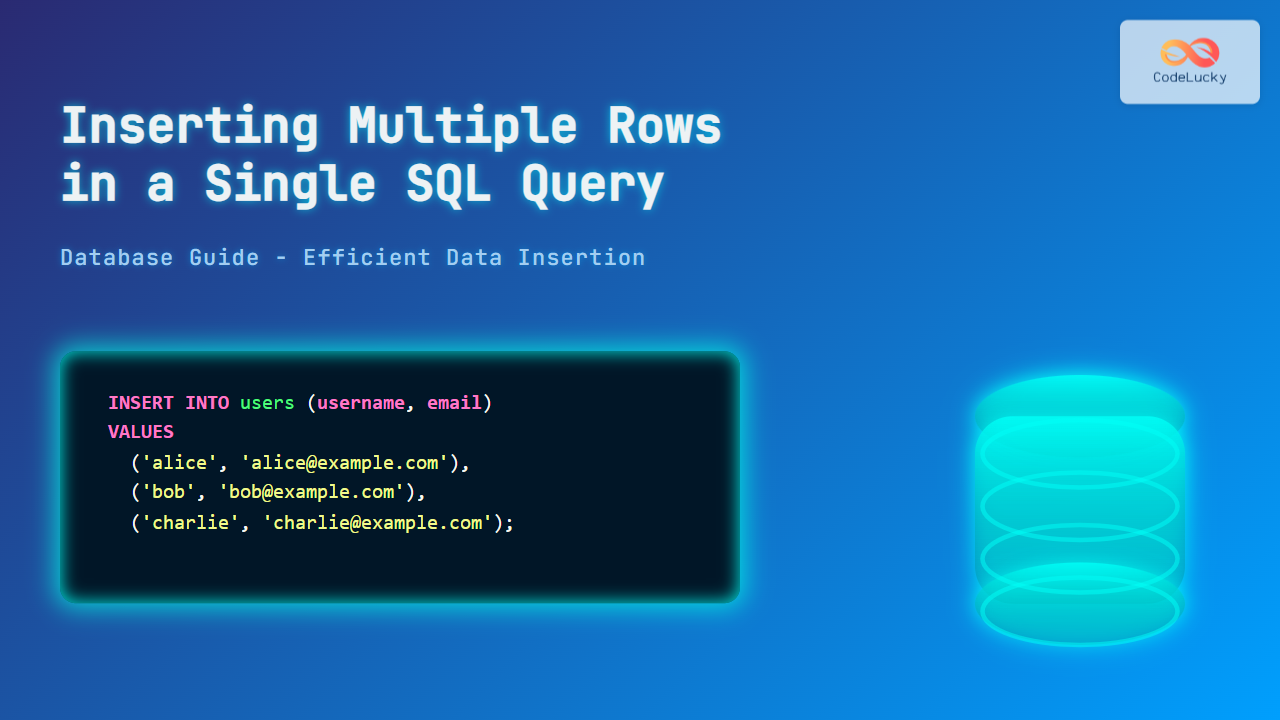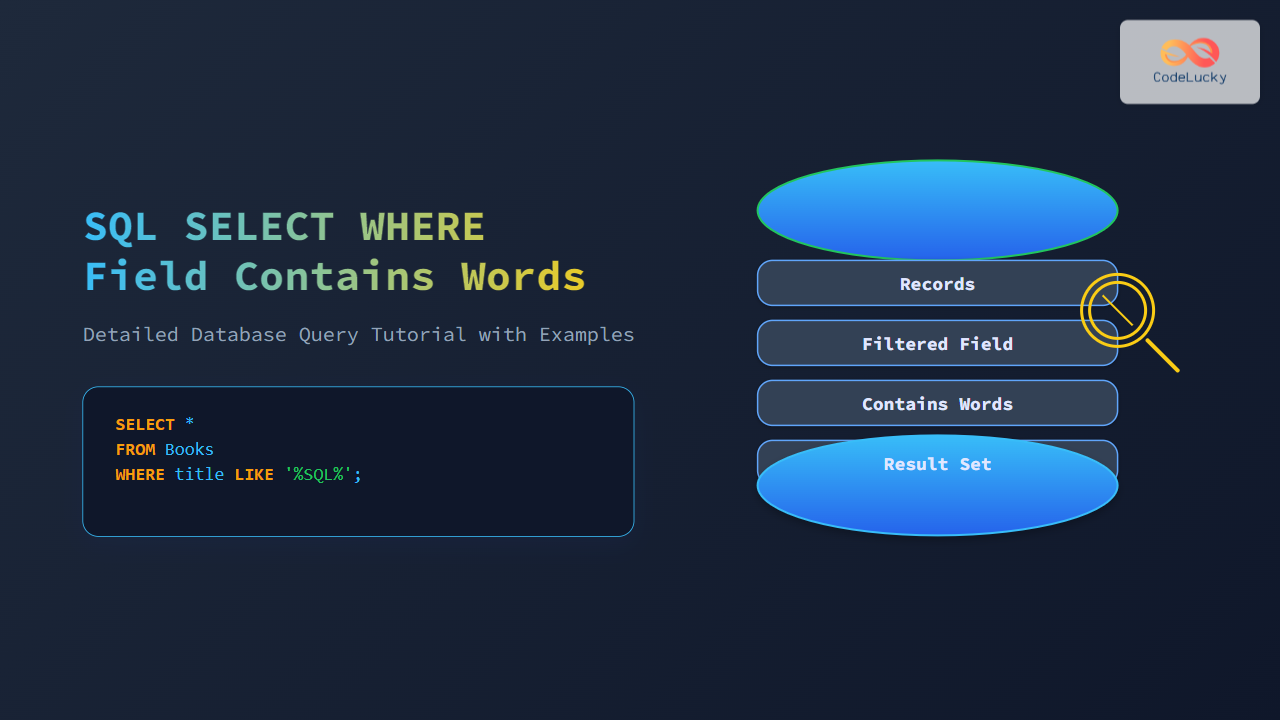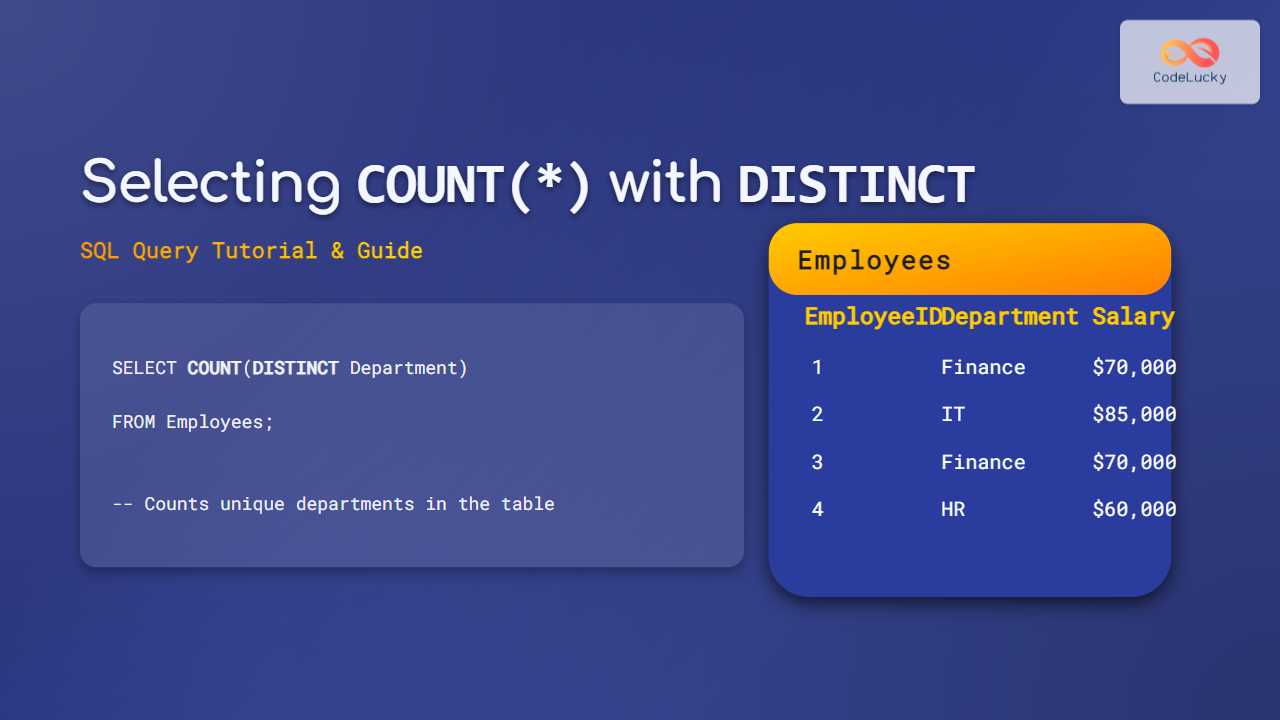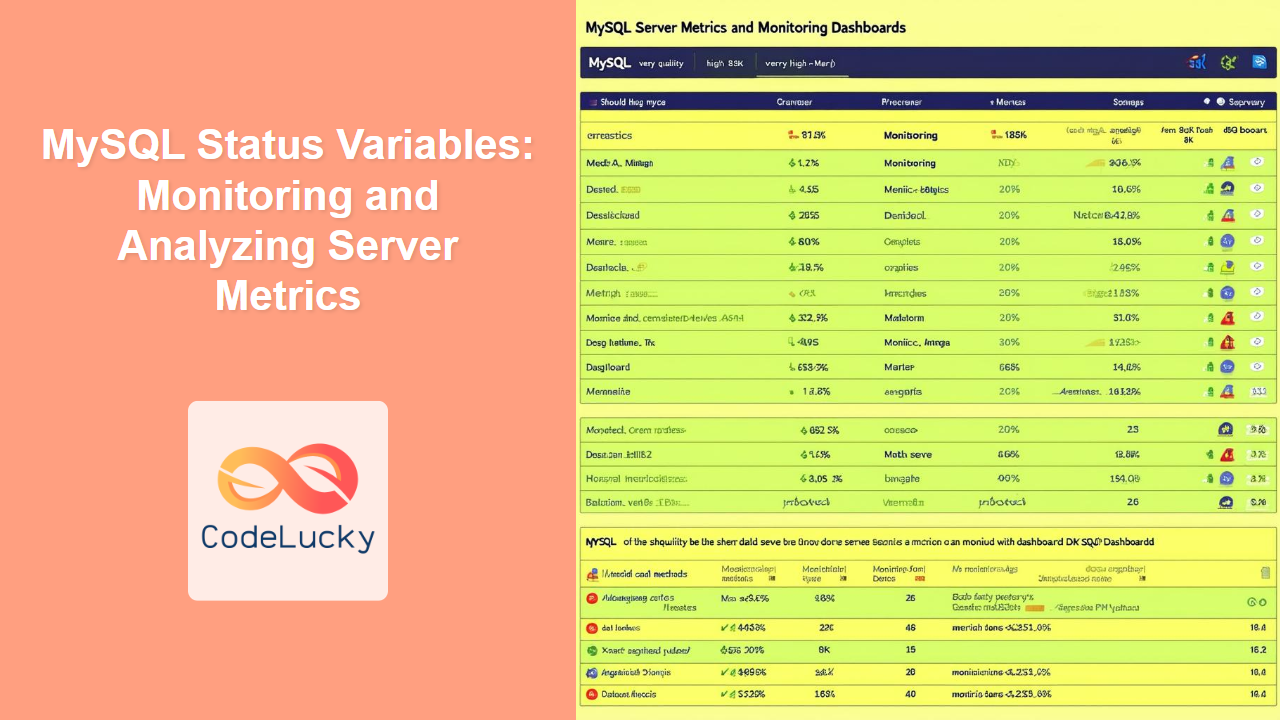In the world of SQL, wildcards are powerful tools that allow for flexible and dynamic string matching. These special characters can significantly enhance your ability to search and filter data, making your queries more versatile and efficient. Whether you're a seasoned database administrator or just starting your SQL journey, understanding wildcards is crucial for mastering data manipulation.
What Are SQL Wildcards?
SQL wildcards are special characters used in WHERE clauses to match a pattern in a string. They act as placeholders for other characters, allowing you to create more flexible search conditions. The most commonly used wildcards in SQL are:
- % (Percent Sign)
- _ (Underscore)
- [] (Square Brackets)
- ^ (Caret)
Let's dive deep into each of these wildcards and explore their usage with practical examples.
The % Wildcard: Matching Any Number of Characters
The percent sign (%) is perhaps the most versatile and frequently used wildcard in SQL. It represents zero, one, or multiple characters in a string.
🔍 Example 1: Finding names that start with 'A'
Suppose we have a table named Employees with the following data:
| EmployeeID | FirstName | LastName |
|---|---|---|
| 1 | Alice | Johnson |
| 2 | Bob | Smith |
| 3 | Charlie | Brown |
| 4 | David | Anderson |
| 5 | Eve | Wilson |
To find all employees whose last name starts with 'A', we can use the following query:
SELECT * FROM Employees
WHERE LastName LIKE 'A%';
This query will return:
| EmployeeID | FirstName | LastName |
|---|---|---|
| 4 | David | Anderson |
The 'A%' pattern matches any last name that starts with 'A' followed by zero or more characters.
🔍 Example 2: Finding names that contain 'son'
To find all employees whose last name contains 'son', regardless of its position:
SELECT * FROM Employees
WHERE LastName LIKE '%son%';
Result:
| EmployeeID | FirstName | LastName |
|---|---|---|
| 1 | Alice | Johnson |
| 4 | David | Anderson |
| 5 | Eve | Wilson |
Here, '%son%' matches any last name that has 'son' anywhere in it, with any number of characters before or after.
The _ Wildcard: Matching a Single Character
The underscore (_) wildcard represents exactly one character. It's useful when you know the length of the string you're searching for but are uncertain about one or more specific characters.
🔍 Example 3: Finding names with a specific pattern
Let's say we want to find all employees whose first name is four letters long and ends with 've':
SELECT * FROM Employees
WHERE FirstName LIKE '__ve';
This query would return:
| EmployeeID | FirstName | LastName |
|---|---|---|
| 5 | Eve | Wilson |
The pattern '__ve' matches any four-letter name where the last two letters are 've'.
Combining % and _ Wildcards
You can use both % and _ wildcards together for even more flexible matching.
🔍 Example 4: Complex pattern matching
Let's find all employees whose last name starts with any character, followed by 'row', and then any number of characters:
SELECT * FROM Employees
WHERE LastName LIKE '_row%';
Result:
| EmployeeID | FirstName | LastName |
|---|---|---|
| 3 | Charlie | Brown |
This pattern '_row%' matches 'Brown' because it starts with any single character (B), followed by 'row', and then any number of characters (n).
The [] Wildcard: Matching Any Single Character Within the Brackets
The square brackets [] allow you to specify a set of characters to match at a single character position. This wildcard is particularly useful when you want to match against a specific set of characters.
⚠️ Note: The [] wildcard is not supported in all SQL databases. It's commonly used in Microsoft SQL Server but may not work in MySQL or PostgreSQL.
🔍 Example 5: Finding names with specific first letters
Suppose we want to find all employees whose first name starts with either 'A', 'B', or 'C':
SELECT * FROM Employees
WHERE FirstName LIKE '[ABC]%';
This query would return:
| EmployeeID | FirstName | LastName |
|---|---|---|
| 1 | Alice | Johnson |
| 2 | Bob | Smith |
| 3 | Charlie | Brown |
The pattern '[ABC]%' matches any name that starts with either 'A', 'B', or 'C', followed by any number of characters.
The ^ Wildcard: Matching Any Character Not in the Brackets
When used within square brackets, the caret (^) symbol negates the set, matching any character that is not in the brackets.
🔍 Example 6: Excluding specific starting letters
To find all employees whose last name does not start with 'S' or 'W':
SELECT * FROM Employees
WHERE LastName LIKE '[^SW]%';
Result:
| EmployeeID | FirstName | LastName |
|---|---|---|
| 1 | Alice | Johnson |
| 3 | Charlie | Brown |
| 4 | David | Anderson |
The pattern '[^SW]%' matches any last name that doesn't start with 'S' or 'W'.
Escaping Wildcard Characters
Sometimes, you might need to search for the actual wildcard characters (%, _, [, ], ^) in your data. In such cases, you need to escape these characters to treat them as literal characters rather than wildcards.
Most SQL databases use the backslash () as an escape character, but some might use other characters or methods.
🔍 Example 7: Searching for literal % character
Suppose we have a Products table with a ProductCode column:
| ProductID | ProductName | ProductCode |
|---|---|---|
| 1 | Widget A | W-10% |
| 2 | Gadget B | G-20 |
| 3 | Tool C | T-30% |
To find all products whose code ends with a literal '%' character:
SELECT * FROM Products
WHERE ProductCode LIKE '%\%%' ESCAPE '\';
Result:
| ProductID | ProductName | ProductCode |
|---|---|---|
| 1 | Widget A | W-10% |
| 3 | Tool C | T-30% |
In this query, '\%' tells SQL to treat the % as a literal character, not a wildcard. The ESCAPE '\' clause specifies that we're using backslash as our escape character.
Wildcard Performance Considerations
While wildcards are powerful, they can sometimes lead to performance issues, especially when used with leading wildcards (e.g., LIKE '%text'). This is because such patterns often can't utilize indexes effectively, potentially resulting in full table scans.
🚀 Performance Tip: When possible, try to avoid using leading wildcards. For example, instead of LIKE '%son', if you know the string always appears at the end, use LIKE '%son'.
Practical Applications of SQL Wildcards
Let's explore some real-world scenarios where SQL wildcards can be incredibly useful:
1. Email Validation
Wildcards can help in basic email validation or searching for emails from specific domains.
🔍 Example 8: Finding Gmail addresses
SELECT * FROM Users
WHERE Email LIKE '%@gmail.com';
This query finds all users with Gmail addresses.
2. Phone Number Formatting
Wildcards can assist in searching for phone numbers with various formats.
🔍 Example 9: Matching phone numbers
SELECT * FROM Contacts
WHERE Phone LIKE '(___) ___-____' OR Phone LIKE '___-___-____';
This query matches phone numbers in either (123) 456-7890 or 123-456-7890 format.
3. Product Code Search
Wildcards are useful for flexible product code searches.
🔍 Example 10: Finding products by partial code
SELECT * FROM Products
WHERE ProductCode LIKE 'ABC-__-XYZ%';
This query finds products with codes starting with 'ABC-', followed by any two characters, then 'XYZ', and optionally more characters.
Conclusion
SQL wildcards are powerful tools that significantly enhance your ability to search and filter data flexibly. By mastering the use of %, _, [], and ^ wildcards, you can create more dynamic and efficient queries, allowing for complex pattern matching and data retrieval.
Remember to use wildcards judiciously, considering their impact on query performance, especially with large datasets. With practice and careful application, wildcards can greatly improve your SQL querying capabilities, making you a more effective database professional.
Whether you're searching for specific patterns in text data, validating input formats, or performing complex data analysis, SQL wildcards are invaluable tools in your database toolkit. Keep experimenting with different combinations and applications to unlock their full potential in your SQL queries!
- What Are SQL Wildcards?
- The % Wildcard: Matching Any Number of Characters
- The _ Wildcard: Matching a Single Character
- Combining % and _ Wildcards
- The [] Wildcard: Matching Any Single Character Within the Brackets
- The ^ Wildcard: Matching Any Character Not in the Brackets
- Escaping Wildcard Characters
- Wildcard Performance Considerations
- Practical Applications of SQL Wildcards
- Conclusion














